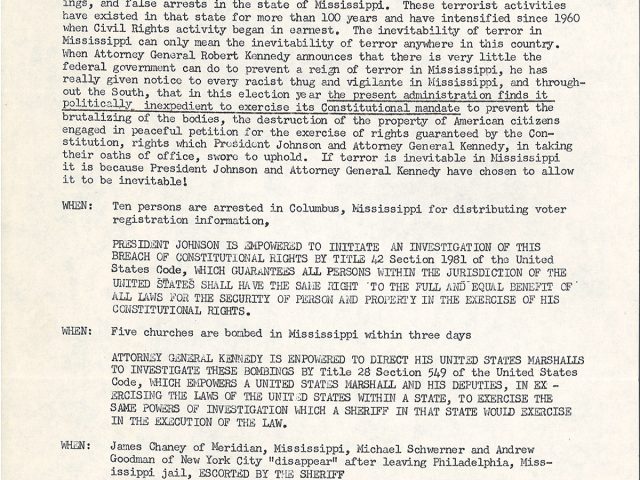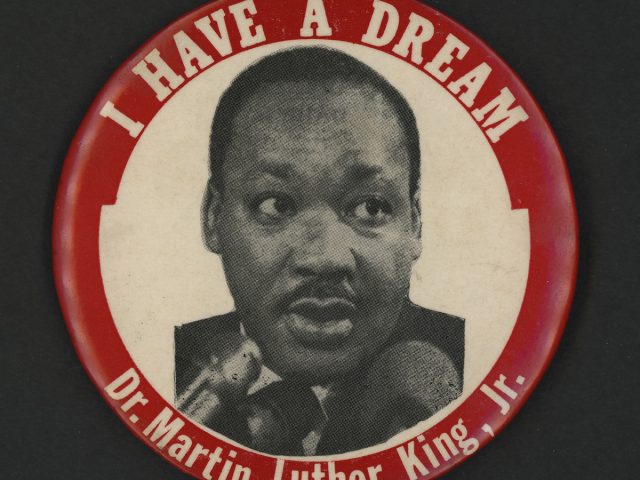
The Presidency and Civil Rights
Presidents often hesitated to act decisively on civil rights, even though activists pursued equality after the Second World War. Presidents Truman and Eisenhower both hosted civil rights committees at the White House and enacted limited civil rights policies. President Kennedy spoke directly with Civil Rights Movement leaders and publicly opposed segregation. Transformative change, by the executive branch, only occurred after the Civil Rights Act (1964) and Voting Rights Act (1965) were signed into law under President Johnson. This legislation was an essential product of decades of civil rights work but did not eradicate systemic racism that still permeates society today.
![[Summary Memo of Freedom Riders and Montgomery Mob Violence]](https://exhibitions.library.vanderbilt.edu/us-presidency/wp-content/uploads/sites/49/2021/11/USPresidencyBuchanan_SeigenthalerReport1961_pg1-1200-640x480.jpg)

![[SNCC Petition Letter to President Lyndon B. Johnson]](https://exhibitions.library.vanderbilt.edu/us-presidency/wp-content/uploads/sites/49/2021/11/USPresidencyBuchanan_LBJLetter_SNCC_EdwinHamlett-1200-640x480.jpg)


![[Lest We Forget, JFK, RFK, MLK Assassination]](https://exhibitions.library.vanderbilt.edu/us-presidency/wp-content/uploads/sites/49/2021/11/USPresidencyBuchanan_JFK_MLK_RFK_LestWeForget-1200-640x480.jpg)
![[National Women’s Committee for Civil Rights Appeal to Women of Birmingham after 16th Baptist Church Bombing]](https://exhibitions.library.vanderbilt.edu/us-presidency/wp-content/uploads/sites/49/2021/11/USPresidencyBuchanan_NatlWomensCommitteeforCivilRights-1200-640x480.jpg)
![[President Eisenhower Meeting with NAACP Leaders Walter White (at right) and Clarence Mitchell (behind Eisenhower) at the White House]](https://exhibitions.library.vanderbilt.edu/us-presidency/wp-content/uploads/sites/49/2021/12/USPresidencyBuchanan_Eisenhower_NAACPOfficials_1954_EgertonPapers-1200-640x480.jpg)
![[President Truman’s Committee on Civil Rights]](https://exhibitions.library.vanderbilt.edu/us-presidency/wp-content/uploads/sites/49/2021/12/USPresidencyBuchanan_Truman_CivilRightsCommission_1947_EgertonPapers-1200-640x480.jpg)
![[Correspondence from Attorney General Robert Kennedy to John Seigenthaler]](https://exhibitions.library.vanderbilt.edu/us-presidency/wp-content/uploads/sites/49/2021/11/USPresidencyBuchanan_RFKLettertoSeigenthaler-1200-640x480.jpg)
